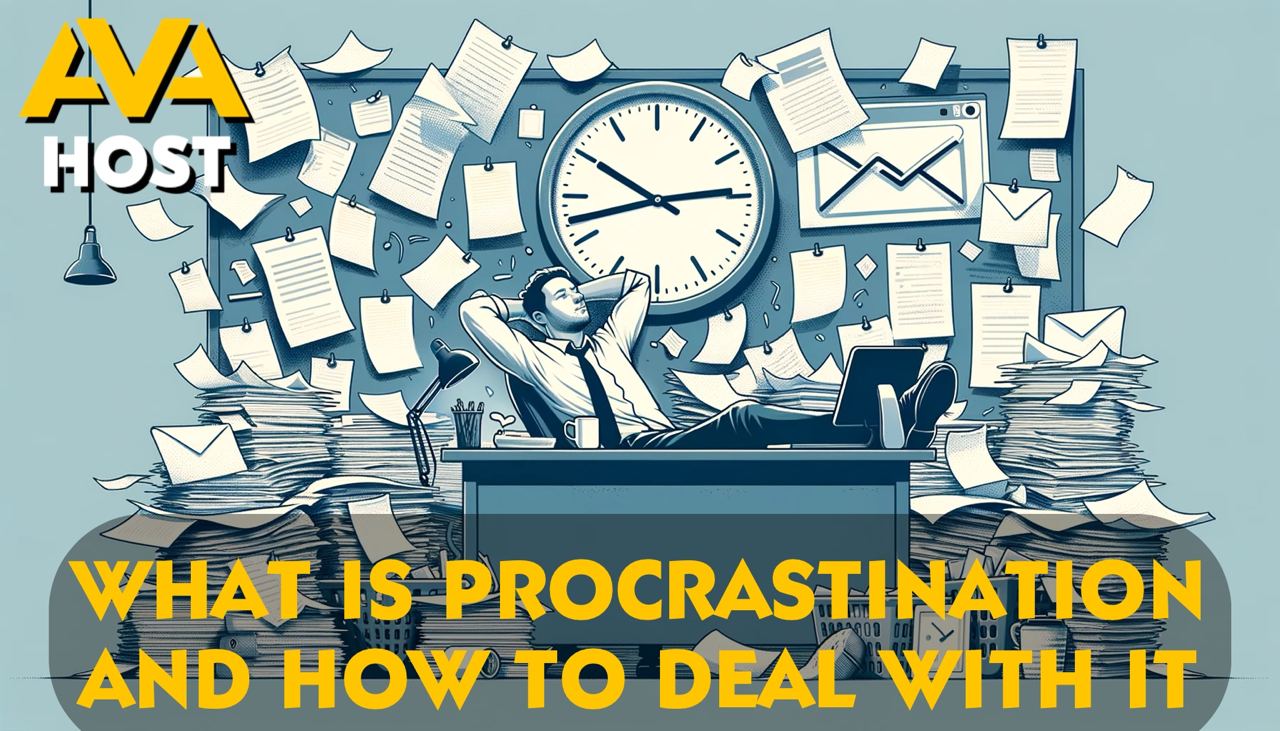What is a Procrastination and how to deal with it

Procrastination, often colloquially referred to as the act of “putting off” or “delaying” tasks, is a common phenomenon that affects individuals across various aspects of life. It involves the avoidance of tasks or responsibilities that need to be addressed, often resulting in last-minute rushes to complete them or, in some cases, incomplete work. Procrastination can have detrimental effects on productivity, time management, and overall well-being if left unchecked. Understanding the root causes and effects of procrastination is essential for effectively dealing with it.
Causes of Procrastination
- Fear of Failure: One of the primary reasons individuals procrastinate is the fear of failure or fear of not meeting expectations. The anticipation of negative outcomes or criticism can lead to avoidance behavior, as individuals may perceive it as a way to protect their self-esteem.
- Perfectionism: Perfectionists may struggle with procrastination due to their high standards and fear of making mistakes. The pressure to achieve flawless results can be paralyzing, leading them to delay starting or completing tasks until they feel they can meet unrealistic expectations.
- Lack of Motivation: Low motivation or interest in a task can also contribute to procrastination. When individuals do not find tasks engaging or meaningful, they may struggle to muster the energy or enthusiasm needed to begin or complete them.
- Poor Time Management: Difficulty managing time effectively can result in procrastination. Without clear priorities or deadlines, individuals may struggle to allocate their time efficiently, leading to delays in task completion.
- Overwhelm: Feeling overwhelmed by the magnitude or complexity of tasks can lead to procrastination. When individuals perceive tasks as too daunting or insurmountable, they may resort to avoidance as a coping mechanism.
Effects of Procrastination
- Increased Stress: Procrastination often leads to increased stress and anxiety as deadlines approach and tasks remain unfinished. The pressure of looming deadlines can be overwhelming, contributing to heightened levels of stress and negative emotions.
- Decreased Productivity: Procrastination can significantly hinder productivity, as tasks are postponed or rushed at the last minute. This can result in subpar work quality, missed opportunities, and inefficiencies in achieving goals.
- Missed Deadlines: Procrastination increases the likelihood of missing deadlines, which can have consequences such as academic penalties, work-related repercussions, or strained relationships with others who depend on timely completion of tasks.
- Negative Self-Perception: Chronic procrastination can erode self-confidence and self-esteem, as individuals may perceive themselves as lazy, incompetent, or unreliable due to their inability to follow through on commitments.
Strategies for Dealing with Procrastination
- Set Clear Goals and Priorities: Establish clear, achievable goals and prioritize tasks based on their importance and deadlines. Breaking tasks down into smaller, manageable steps can make them less daunting and more manageable.
- Manage Time Effectively: Use time management techniques such as creating schedules, setting deadlines, and using tools like calendars or to-do lists to organize tasks and allocate time efficiently.
- Address Perfectionism: Challenge perfectionistic tendencies by setting realistic expectations and focusing on progress rather than perfection. Accepting that mistakes are a natural part of the learning process can help alleviate the pressure to achieve flawless results.
- Overcome Fear of Failure: Reframe your mindset towards failure as an opportunity for growth and learning rather than a reflection of your worth or abilities. Embrace a growth mindset and view challenges as opportunities for development.
- Break Tasks into Manageable Chunks: Break larger tasks into smaller, more manageable chunks and focus on completing one step at a time. This approach can make tasks feel less overwhelming and increase motivation to get started.
- Minimize Distractions: Identify and minimize distractions that contribute to procrastination, such as social media, email notifications, or environmental factors. Create a conducive work environment that minimizes interruptions and promotes focus.
- Practice Self-Compassion: Be kind to yourself and recognize that occasional procrastination is normal. Avoid self-criticism and negative self-talk, and instead, practice self-compassion and forgiveness when setbacks occur.
- Seek Accountability and Support: Share your goals and progress with others, and consider working alongside a study buddy, mentor, or accountability partner to provide support and encouragement. Having someone to hold you accountable can help you stay on track and motivated.
By implementing these strategies and cultivating self-awareness, individuals can effectively address procrastination and improve their productivity, time management, and overall

